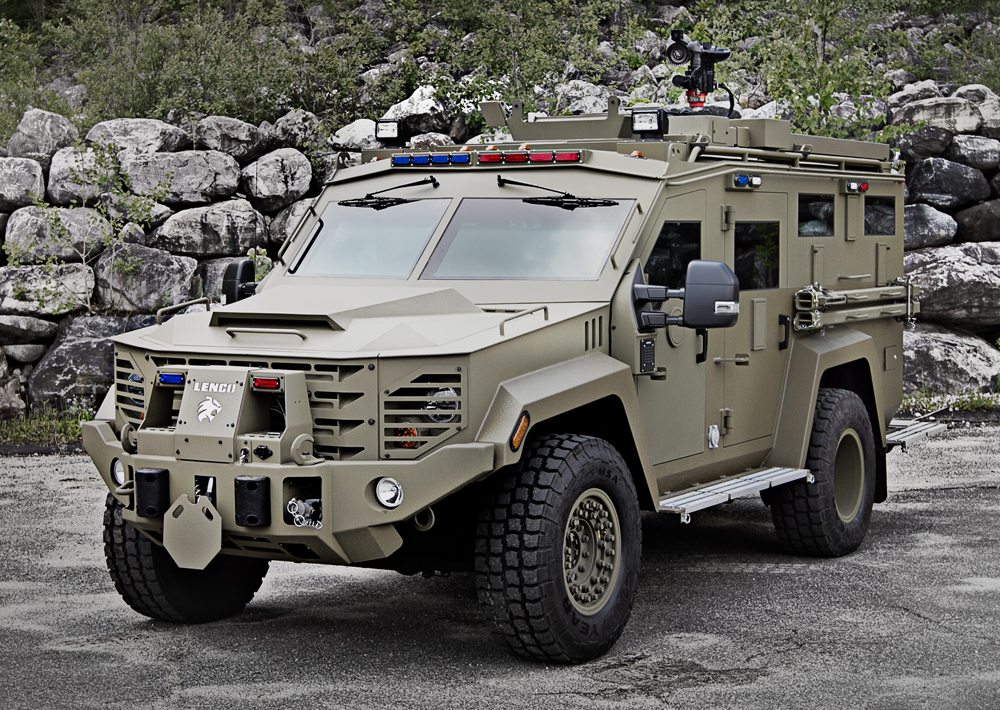Antwerp mayor this week announced the launch of Operation NightWatch, a crackdown on drugs crime which he promised would be the city’s “largest security operation in 20 years.”
The initiative has been generally – but not universally – been seen as a flexing of the city’s muscles at a time when it seemed that criminals had free run of the city. There have been numerous reports in recent weeks of grenades and other explosions, and houses and business premises being shot up. Strangely, or perhaps fortuitously, nobody has been injured.
Now the city and its police force are not prepared to take a chance on innocent people escaping violence forever, and nothing could demonstrate a flexing of muscles like the deployment on the streets of the Bear-Cat armoured vehicle.
The BearCat, manufactured by Lenco Armored Vehicles of Massachusetts in the US, is only available for military and law enforcement use, and it is deployed in more than 40 countries.
The name stands for Ballistic Engineered Armored Response Counter Attack Truck, and is basically a heavy-duty commercial pick-up encased in an armour coating of military steel up to 1.5in thick (3.8cm), with ballistic glass, blast-resistant floors and gun-ports as standard.
It can on request also be fitted with sirens, spotlights, thermal cameras and a battering ram.
The vehicle comes in nine different configurations, and judging by photos in the press, the model chosen by Antwerp appears to be the BearCat G3, which its manufacturer describes as suitable for off-road and rural operations, able to seat 12 fully-equipped officers and designed to rescue “downed personnel”.
The Lenco website makes it sound rather unsuited for the Antwerp urban situation: “If your mission takes you off-road, the Lenco BearCat G3 will get you where you need to go,” the company says.
Antwerp purchased its BearCats from Lenco in 2017 to act as a rapid-response vehicle, although it was only rolled out two years later during what seemed like a hostage situation which turned out to be a misunderstanding. It was also brought out last New Year to block off streets.
The curfew introduced last month by Antwerp province’s governor Cathy Berx (CD&V) has ended, but another de facto curfew could be beginning. De Wever and his police chief Serge Muyters (the brother of De Wever’s party colleague and former minister Philippe Muyters) have promised that anyone on the street in sensitive areas like Borgerhout and Deurne may be stopped and subjected to an ID check, and if necessary some streets could be closed to all traffic.
“We are going to try to make it clear to the drug environment that they have gone too far,” Muyters said this week.
“Since weapons of war are being used, the BearCats will be on the street,” De Wever told local TV station ATV.
“If those people are caught red-handed, we aim to be able to meet them with equal force,” he said.
Alan Hope
The Brussels Times

